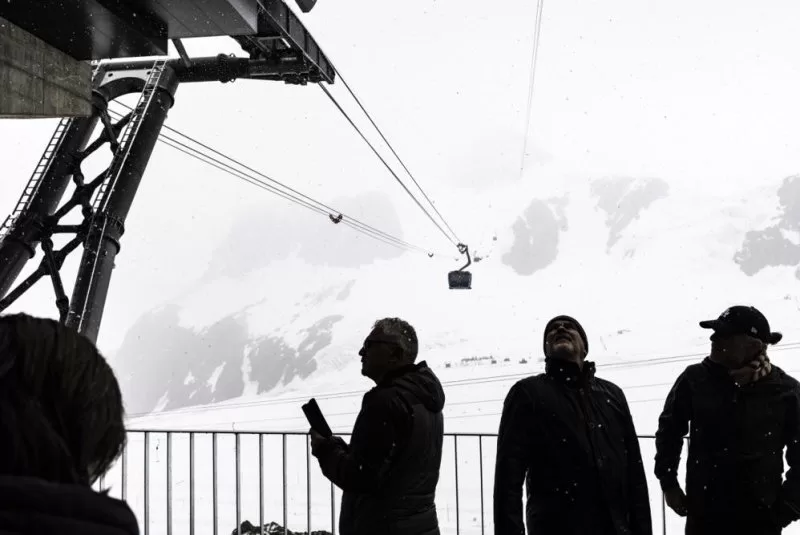View from valley station Testa Grigia towards Klein Matterhorn onto the new gondola before the official opening of the new Matterhorn Glacier Ride II on June 30, 2023. Glacier melt in the same area has forced Switzerland and Italy to redraw their border. File Photo by Dominic Steinmann/EPA-EFE
Sept. 30 (UPI) — Switzerland and Italy redrew their shared borders in response to fast-melting glaciers along the Matterhorn.
The melting of the glaciers, brought about by climate change, necessitated new borders as much of the pre-established boundaries were set by areas of perpetual snow that on Europe’s highest mountains.
In May 2023, a joint commission from both countries studied maps and glacier melting to come up with new border recommendations
Officials said the adjustment will be made along the Plateau Rosa, the Carrel refuge and the Gobba di Rollin, which are near the Matterhorn. Several popular ski resorts in Switzerland and Italy sit near the area.
On Friday, the Swiss government approved the new borders, which have not been made public but it said were meant to serve the economic interests of both countries.
Italy has not approved new borders.
Documenting and adjusting to glacier shrink is important in the Alps because the changes can change common mountain routes and damage their stability. Eleven climbers were killed in 2022 in the Italian Dolomites when ice collapsed off a mountain glacier.
The Swiss Academy of Sciences reported that the country suffered back-to-back record glacier melts over the past two years. In 2022 Swiss glaciers lost 6% of their volume and in 2023 another 4%, the top two volume loss years ever confirmed.
The European glacier has been measured annually for more than 100 years.

